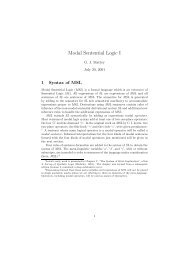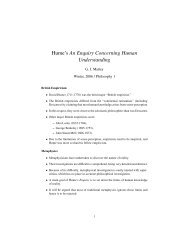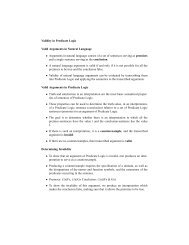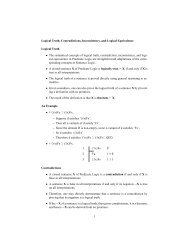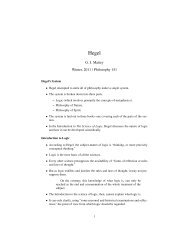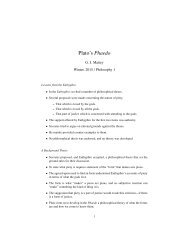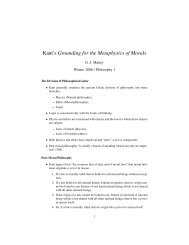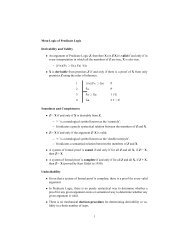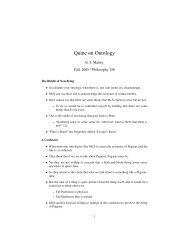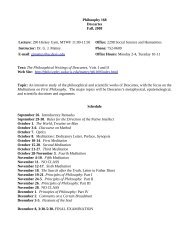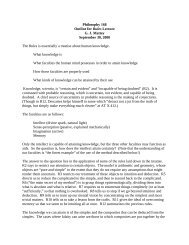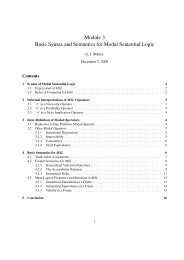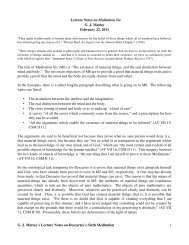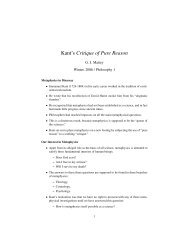Aristotle's Nicomachean Ethics - the UC Davis Philosophy Department
Aristotle's Nicomachean Ethics - the UC Davis Philosophy Department
Aristotle's Nicomachean Ethics - the UC Davis Philosophy Department
You also want an ePaper? Increase the reach of your titles
YUMPU automatically turns print PDFs into web optimized ePapers that Google loves.
• The extremes are:<br />
– What is good, without regard to <strong>the</strong> individual,<br />
– What is bad without regard to <strong>the</strong> individual.<br />
• Acting lawfully and fairly promotes <strong>the</strong> mean, which is what is good for <strong>the</strong><br />
agent.<br />
– Wealth is unconditionally good, but it is not good for me if I gain it by <strong>the</strong>ft.<br />
• Correctly established law will promote o<strong>the</strong>r virtues, so justice is <strong>the</strong> supreme<br />
virtue.<br />
• Justice is also complete because, unlike <strong>the</strong> o<strong>the</strong>r virtues, it is directed toward<br />
o<strong>the</strong>r people.<br />
Virtues of Thought<br />
• Having completed his discussion of <strong>the</strong> virtues of character, Aristotle turns to <strong>the</strong><br />
virtues of thought.<br />
• There are two virtues of thought:<br />
– Prudence (rationally acquired true beliefs concerning contingent facts about<br />
what is good for us),<br />
– Wisdom (<strong>the</strong>oretical knowledge of necessary truths).<br />
• It may seem that prudence and wisdom are of no use to one who is already clever.<br />
• But <strong>the</strong> two virtues are productive:<br />
– Prudence elevates <strong>the</strong> natural virtue of cleverness to “full virtue,” by directing<br />
it to <strong>the</strong> good.<br />
– Wisdom produces happiness.<br />
• Socrates was correct in saying that all virtues require prudence, but wrong in<br />
saying <strong>the</strong>y are all instances of prudence.<br />
A Life of Study or a Life of Action?<br />
• A life of study is superior to a life of action.<br />
• The reason for <strong>the</strong> superiority of study is that study is an end in itself, while<br />
action is aimed at a fur<strong>the</strong>r end.<br />
• Study is also <strong>the</strong> most characteristically human function, one not shared with<br />
animals.<br />
10



